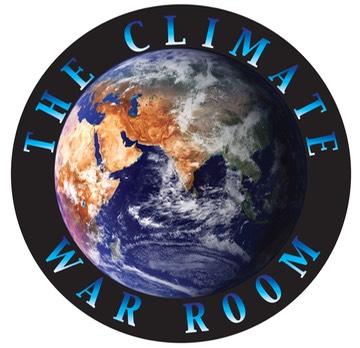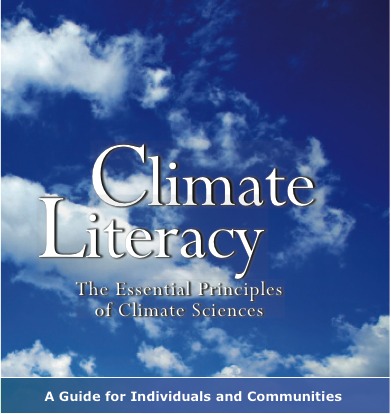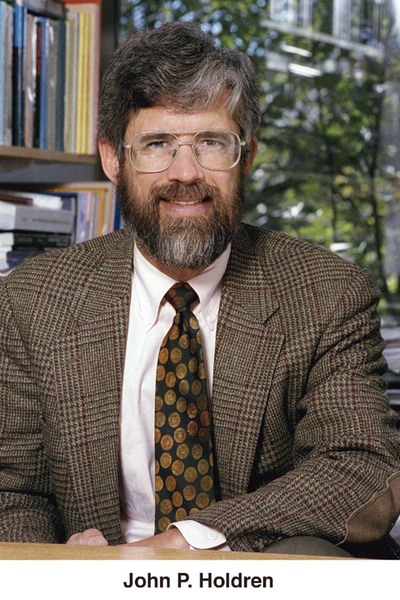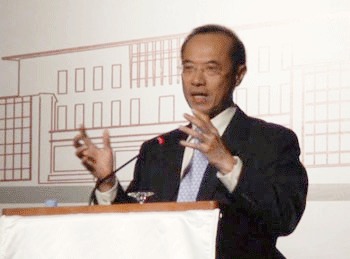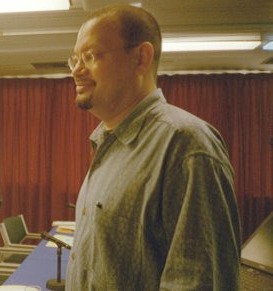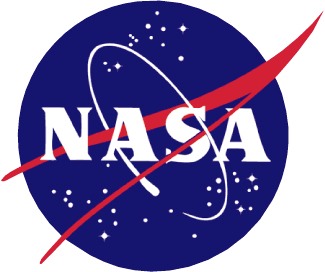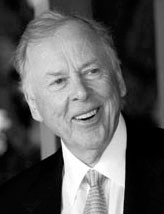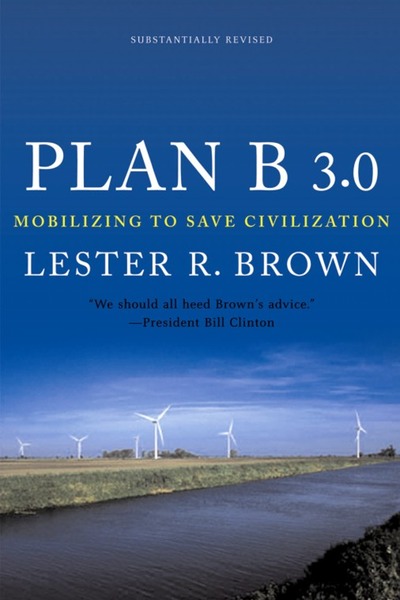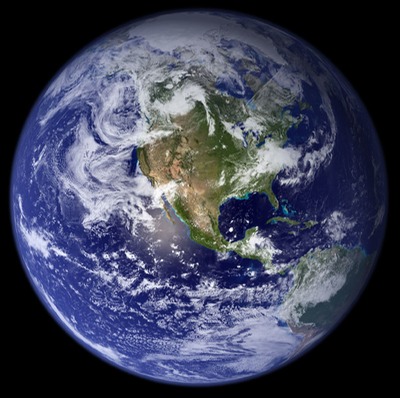MFA Press Release: Transcript Of Speech By Minister For Foreign Affairs George Yeo at the Opening Gala Dinner of the Inaugural S.T.Lee Project On Global Governance Conference at The Four Seasons Hotel, Singapore on 5 December 2008
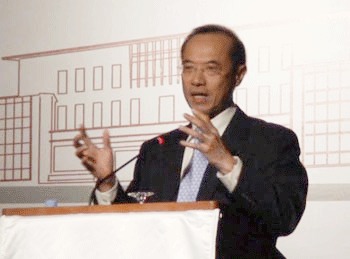
Minister For Foreign Affairs George Yeo
First let me thank Kishore for inviting me here this evening to join you for a discussion on global governance. I feel very honoured to be paired with Strobe Talbott, whose speech I enjoyed very much. A few weeks ago, Ann Florini sent me his book - The Great Experiment - which I dipped into with pleasure. He had a section on gypsies which I really enjoyed reading. It reminded me of a conversation I had with a Roman Cardinal some years ago when I was in Rome attending the canonisation of the Opus Dei founder Josemaría Escrivá. The cardinal said that John Paul II had not too long before, canonised a gypsy saint; and St Peters square was flooded with gypsies. But this time in a role which most Italians were not used to seeing. The Roman Cardinal said to the gypsy leader: "Now that you have your own saint you have got to behave better." The manner in which he narrated this story to me showed first, recognition of the problem, then a challenge to better behaviour but, most importantly, love, profound love. Reading Strobe Talbott's account of the gypsies in his book, how he sought them out in order to understand better, I thought that this is a man with a heart. I had not met Strobe before and am very proud to be joining him this evening for this discussion on global governance, which must always put human beings at the heart of what we are trying to do.
There are almost infinite ways in which human beings can be organised. That is the study of history, and gypsies who are unrooted in geography are an example. For the first time, more than any other time in history on this planet, we are all bound together. Yet at the same time, each community, it could be a nation or tribe, has centuries if not thousands of years of legacy transmitted through its cultural DNA, which is very difficult to change. There was a time in Australia when they thought that they could pole-vault the aborigines into the 20th Century by taking the young away from their parents and then educating them in a modern environment. The result was an absolute tragedy. We do not quite know how the cultural DNA is transmitted from mother to child. We know it takes a village to raise a human being. In ways, we do not fully understand, the cultural transmission is tenacious. When we talk about globalisation, we are talking about the way in which we bring different complex operating systems together. It is like the internet. The internet was an ARPA discovery. That by each operating system accepting a certain protocol, TCP/IP, different systems could interconnect even though they have different legacies and different deep programmes. Built upon this, through hyperlinks, we could communicate as if we belonged to a common system. In some ways, this is what globalisation is. Through common rules, such as those of the UN, rules of warfare, rules of human conduct, rules of trade in WTO, rules of financial management in BIS, and so on, different countries and different systems are able to come together resulting in a greater division of labour and greater productivity for humanity as a whole.
The recent financial crisis is a crisis of that hyperlink, or an aspect of that hyperlink. The global imbalance - so much has been written about it, this is not the subject which I am going to talk about tonight. Except that the financial crisis is a problem of the higher system which links us all together. Strobe talked about President Bush convening the G-20 meeting to address the problem, of this hyperlink or the hyper net. But if you look deeper into it, stripped of all the extraneous aspects, the core relationship in the 21st Century is the relationship between the US as the world's sole superpower today and China as an emergent superpower. I am not discounting the importance of Europe, Russia, Japan, Brazil or India - after all we are talking about the multi-polar reality this century - but the core is the Sino-US relationship. If we get that right, I believe the other poles can be fitted in and the global system can run reasonably effectively. But if that nexus between the US and China is broken, there is no way we can put the global system together. Whether it is a problem of proliferation or climate change or financial stability, without the US-China nexus, it cannot work.
This evening, I would like to talk about this critical relationship in global governance - the Sino-US relationship. These two countries, China and US constitute very different operating systems. Singapore is a point, a city state and we take the world as it is. We do not try to change the world because we cannot change the world. But, we got to adapt to it and live by arbitraging differences in systems, cultures and so on. We are three-quarters Chinese, so we have a certain familiarity with the Chinese system but we were established by the British East India Company. We use English as our common language for communication. Our legal system, our administrative systems, are all Anglo-Saxon in origin. There is a lot of the Anglo-Saxon world in us. When we deal with the Chinese, we switch to our Chinese channel, when we deal with the Americans; we switch to our American channel. We do this almost instinctively because we are taught at a young age to adjust to different groups and different combinations of groups. This is really what defines Singapore - our multi-channel characteristic.
But going back to China, to what it is, and why it is so different from the US. China is China. China is a highly evolved civilisation which is almost impossible for any individual or group of individuals to change rapidly. Mao Zedong in his final days said he achieved very little. This was by his own admission. China has a tradition, what Fairbanks called the Great Tradition, which is persistent and enduring. Some years ago, when I was Minister for Heritage and Information on a visit to China, I asked to see Mao Zedong's hometown Shaoshan in Hunan. I visited the museum which had the usual political presentation. But next to the museum was the Mao ancestral temple which to me was far more interesting. In front of me, on the high altar, tablets of the most important forebears, an urn with incense burning, and Mao was on that altar. Recently when I had dinner with a cousin from my ancestral village in southern China, we were talking about the Hakkas, you know Lee Kuan Yew is a Hakka, and an important town in Guangdong is Meixian where Ye Jianying, came from. Ye Jianying was the man who protected Deng Xiaoping from the Gang of Four so that after Mao died, he could be resurrected, and his leadership changed China. He told me that if you visit Ye's ancestral temple, you would find many great men in that family tree. It is a glorious ancestral temple.
A few years ago I went back to my ancestral temple. They were re-opening one branch and I had to do the ceremonies. I could not say no because it would look very bad if I were to deny them that honour, if I were to decline their invitation. After the ceremony I asked to record the names of my children in the ancestral book. When I said "My daughter's name is . . . ", they said "Oh, girls do not have to be recorded, only your sons". My sister who was with me grumbled "You see, when they want money, they contact you, when it comes to recording who you are, they ignore the girls". But the daughters-in-law are a separate matter. I have a nephew whose daughter-in-law is British, and they wanted her name. They said "What's her name?" "Jane Goodall." "How do you write it?" "J,a, ". They wrote it down letter by letter. Sons and the wombs bearing sons are recorded. Throughout Southern China, despite all the official talk about Communism and so on, an ancient tradition is coming back with amazing force. Every Chinese Minister, every State Councillor, every Vice-Premier, every member of the Standing Committee is being claimed by his ancestral temple because it brings honour to the ancestors, it brings honour to the progeny. Listening to Hu Jintao in recent years, he talks about a harmonious society and you notice they downplay the dictatorship of the proletariat and the class struggle. They have gone back to Confucius now. This Confucian aspect of Chinese society is deep in the cultural DNA and not something which can be willed away. Yes, when you're trying to overthrow the emperor or government, you debunk Confucius but when they re-establish power, they bring it back.
China is a country, indeed it is a civilisation, with a deep sense of itself. Every dynasty considers it a duty to record the history of the previous dynasty, and over the centuries, 24 official histories had been written, astonishing in its accuracy with respect to names, events and geography but always exaggerating triumphs and failures. Today, the history of Southeast Asia, the history of many parts of the world including India and Central Asia, would not be a fraction of what it is without reference to the Chinese records. The last Chinese dynasty was the Qing dynasty which ended in 1911. It is only a few years ago that the PRC decided to write the official history of the Qing dynasty. After close to a hundred years! Li Lanqing, the Vice-Premier, spoke to the scholars and the historians before they embarked on this exercise: "Collect the material - local sources, provincial sources, foreign sources - but do not be too quick to draw conclusions". This is an instinct or a worldview which no other civilisation has. The Chinese have no desire to convert a non-Chinese into Chinese. They are like the Jews, if you not born one, that is okay, there is no requirement for you to become one. But for precisely this reason the Chinese have a view of the world which sees globalisation in terms of China at the centre, and China's relationships with other countries individually. The idea of a melange, a complex network with multiple nodes, is something not comfortable to the Chinese. This is in stark contrast to the American view of the world.
The first time I was in China to visit my grandparents, I went with my parents. My experience was a deeply emotional one. It was the only time in my life when I kept a daily diary. When last year I read Obama's book Dreams from my Father, going through his last chapter on his visit to Kenya, I felt a strong resonance. Obama felt he had to go back to find out where he came from, the way I felt I had to go back to find out where I came from. It is emotionally entangling because you have all these relatives and obligations, elders who make claims on you which you resented but which you felt you have to oblige to a degree because it is expected of you. Then when you left, you felt a certain relief but also feeling a compulsion to come back from time to time. And a few years later, I brought my wife, after I got married, to see my grandparents. Obama brought his wife back to see his roots in Kenya. For that reason, he is a very unusual person because of his background. He said when he went back to the US, he felt a certain liberation. And indeed Asians visiting the US breathe fresh air because it is a country which downplays tradition. You can be who you are, you can express your views freely, and you are under not too many obligations. Every time I visit the US, I try to visit heritage sites in New England, Monticello, Mount Vernon and Philadelphia, reading the speeches of the founding fathers, the deliberations that led to the founding of the republic and the writing of the Constitution. They are deeply inspiring, because here were a group of men, people who left Europe, who were persecuted in Europe, arriving on a new continent determined to create human society afresh. In Obama's speeches, you hear echoes of the founding fathers. Because the US was conceived in that manner, it has a different culture; it has a missionary spirit, wanting others to be like them. So unlike the Chinese who do not seek to convert you and make you Chinese, Americans want you to become American because it is such a good thing.
If we look at globalisation today, it is really an American construct, the hyperlink - the HTML language, the XML language - is basically an American language. It is expressed in accounting rules, financial rules, the way armies are organised, industrial standards, financial standards and so on. The problem is when the US becomes excessive in this missionary zeal. Political scientists like Kissinger talk about the dual strain in American foreign policy. There is the national interest which defines the foreign policy of all countries, but there is in American foreign policy always an additional strain, a call to an American ideal, a desire to spread the word, to democratise the world. To a point, that is very attractive and to an extent it enables the world to be globalised. But beyond a point, when you start intruding into the deep operating system of particular countries or tribes, it creates problems.
When America goes into Iraq and tries to democratise Iraqi society as if it has no legacy, you have a problem. When it goes into Afghanistan, and tries to overwrite deep tribal instincts, it runs into problems. I was in Iran a few years ago, in 2004 the year after the US moved into Iraq. It was a very interesting visit; I went to Persepolis and had a sense of how the Iranian saw themselves as being an ancient people with a long history. Someone in my delegation on the last day decided to ask the protocol officer who accompanied me a provocative question. He asked him. "If the Americans were to invade Iran, would you fight the Americans?" His reply shocked me. In a loud voice he said, "Fight them? I would lead them in and show them the way." I was worried for him. He spoke at such a high volume I thought that they would immediately arrest him and throw him into some dark dungeon. In fact if you meet ordinary Iranians, there is a great affection for American culture. Of course, in the establishment, among the elite, there is a strong nationalism that would not buckle to American pressure. American culture can be very attractive, propagated through Hollywood, through its products and services, its brands or the ideas of its founding fathers. But when the US seeks to go beyond that, it finds resistance and limits.
When we talk about global governance and America leading the way, there is no substitute for American leadership because the software linking the world is fundamentally American. The Chinese cannot do that. The Indians cannot do that. The Europeans cannot do that. The Japanese cannot do that. Look at it another way, if one day planet earth were in danger and the only way to preserve the species was to colonise another planet and we draw people from all over the world for that journey. How will human society be organised in that new world? I believe that society is more likely to be like America rather than China, India or Japan. Recently the Chinese had a man walk in space, and being ethnic Chinese, many of us in Singapore felt proud of the achievement. When you watched the people in the Chinese control room cheering, they were all Chinese faces. But when you watch a space launch in the US and observe the people in the control room, they are individuals drawn from all of humanity. If one day there is a Spaceship Enterprise, the Captain can be white, brown, yellow or black and we would not be surprised.
Coming back to the issue of global governance - America has to lead, but America has to lead in a way which acknowledges the diversity of the human family. Whether you are a gypsy or an Australian aborigine or a Chinese or Indian - in fact there are many kinds of Indians - or Arab or Jew, each is profoundly different. Yes, there are similarities which enable us to intercourse like we do this evening. But when it is time to marry off our young, when it is time to conduct funeral rituals, we are different and we have no wish to be the same. Please do not get me wrong when I talk mostly about Sino-US relations. It is not because I am downplaying the importance of Russia, Europe, Japan, India or Brazil or other countries but because I believe in this century that is the single most important relationship to be concerned with.
I would also like to make a brief comment about Islam because I believe Islam is a big challenge to all of us in this century for a variety of reasons. We need more than a seminar or a speech to talk about why Islam is a challenge in this century. Just yesterday, I had a very interesting discussion with the Aga Khan. I was charmed by him. I was so impressed by his sense of humanity and he is the Imam of the Ismaili Shia community! There are 15 million of them in the world. I thought, this is a very different perspective of Islam which we are not used to seeing. For many of us, in many parts of the world, Islam is associated with terrorism, blood and violence, with men wearing turbans and beards. Yes, there is an aspect of Islam which is Salafi, which enabled Muhammed in the 7th Century to unite the tribes of the deserts and steppelands, which many centuries later, also enabled Abdul Aziz Saud to reunite the tribes of the Arabian Peninsula. But that is only one aspect of Islam. There is also the Islam of Samarkand, Bokhara, Damascus, Baghdad, Cairo and Cordoba which represented a great civilization. We are in the middle of a financial crisis. There is so much written about it. I was reflecting on the Muslim proscription against insurance and interest payment. We used to laugh at these strange proscriptions but there is wisdom in them. The underlying concern is about moral hazards when the interests of claimants diverge. When we look at the problem of the financial world today and what led to the crisis, it is because the interests of claimants are opposed. So there is something in Islamic finance which makes a lot of sense. It is important, even as we fight terrorism, to see the achievements of Islam - to celebrate a civilisation which is so well presented in the Musee d'Orsay in Paris, which you can see today in Doha in the new Islamic Centre designed by I M Pei, in the Aga Khan. They enable us to view Islam in perspective and sow greater respect between Muslims and non Muslims. This is very important because, without respect, we cannot deal and, if we do not deal, we suboptimise on the solutions we find.
An Indonesian Minister told me this a few months ago. It was a story that I could not recount earlier because it would be interfering in American domestic politics. He said that at a reception in Washington, he saw Obama whom he knew from before across the room. Obama shouted at him "Assalamu Alaikum" and he replied "Alaikum As-Salam." I was afraid that if I were to repeat the story during the campaign, it would give credence to internet reports that Obama was a closet Muslim. He is not a Muslim. He expressed that greeting not because he is a Muslim but because he understood the words, may the peace of God be with you. There cannot be a better greeting than that.
When we talk about global governance, when all is said and done, it has to be built around the human being - respect for human beings, respect for the diversity of human beings. I can never forget what the Roman Cardinal told me. He served the Pope as the secretary of the Synod of Bishops. He has passed away now. He told me how he drafted a speech for Pope John Paul II to bishops from around the world, saying the "even though we are different we are one". The pope said no, it is because we are different that we are one. In other words, before we can love, before we can respect, we must respect the uniqueness of every individual. If we are all the same, something is very wrong. Countries are different, tribes are different, cultures are different, and in global governance, the basic building block must acknowledge that diversity and that difference. But that which binds us all together, that hyperlink, that for a long time will be American in its essence.
